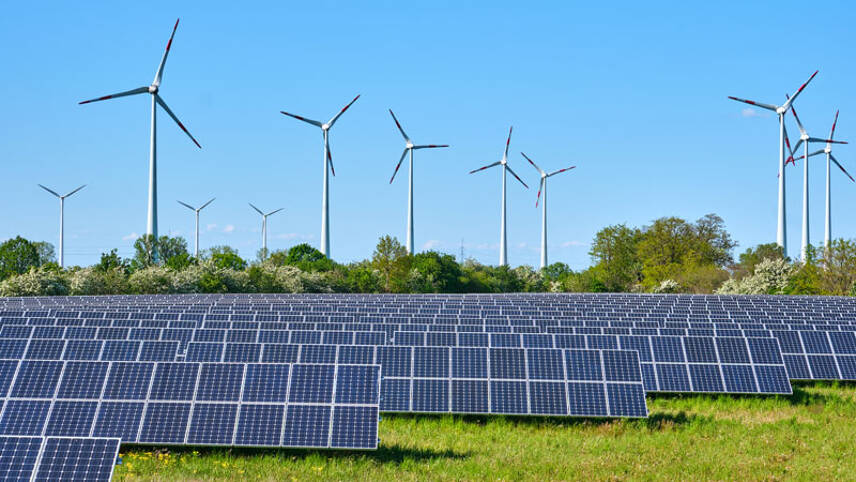Register for free and continue reading
Join our growing army of changemakers and get unlimited access to our premium content

Pictured: Solar and wind generation, Germany.
France, Germany, the Netherlands, Austria, Belgium, Luxembourg, and the Netherlands pledged their support to the 2035 commitment late on Monday (18 December).
In doing so, they followed the lead of the UK, which made this commitment in October 2021.
Germany had already committed last year to eliminating CO2 from electricity generation by 2035. France and Italy then made the same commitment as part of a G7 agreement.
The seven nations are set to jointly plan infrastructure to make sure that they build enough grid capacity and energy storage in the right places. This will help to maintain energy security as more intermittent renewables come online.
But renewables, which accounted for 41% of the EU’s electricity generation mix in 2022, will not be the sole solution. France, in particular, is a proponent of nuclear, which makes up 70% of its electricity generation mix. And the wording of the agreement is such that fossil fuel power plants could be retrofitted with man-made carbon capture solutions to ‘abate’ their CO2 emissions.
Aside from building and coordinating infrastructure, the seven nations will jointly consider issues including supply chain bottlenecks, planning and permitting, subsidy reform and closing the skills gap for clean energy workers.
Modelling from Ember has shown that it would be technically possible and cost-effective for Europe to generate 70-80% of its electricity from renewables by 2035. Coal and gas would only play a residual role, accounting for less than 6% of the generation mix, in Ember’s scenario.
Easier said than done
The UK Government has, since setting its own 2035 target two years ago, repeatedly been compelled to fundamentally reform its planning and permitting system to enable rapid additions of renewable generation, nuclear generation, energy storage and grid capacity.
It has supported accelerated additions on an international stage, including at COP28 in Dubai this season. But much work remains to be done on the ground domestically, beyond ongoing reforms to the Nationally Significant Infrastructure Projects (NISP) process, Ministers have once again been warned this week.
Aurora Energy Research has this week claimed that, to deliver its 2035 target, the UK would need to quadruple its installed offshore wind capacity and more than double pumped hydro storage. It would also need to grow nuclear generation capacity by 35%, which would be particularly challenging given long lead times for large projects and given that no small modular reactors have yet been approved for UK use.
Aurora’s researchers have emphasised that this is not a reason to abandon the goal, especially given the UK’s binding net-zero target and commitments under the Paris Agreement. But the team believes it would be more “realistic” for the milestone to be met in the early 2040s.
“While it’s important to promote an ambitious plan, policymakers need to provide a framework that is designed to deliver the target, otherwise it’s wishful thinking,” said Aurora’s head of research for the UK and Ireland Marc Hedin. “No one invests because of a target.”


Please login or Register to leave a comment.